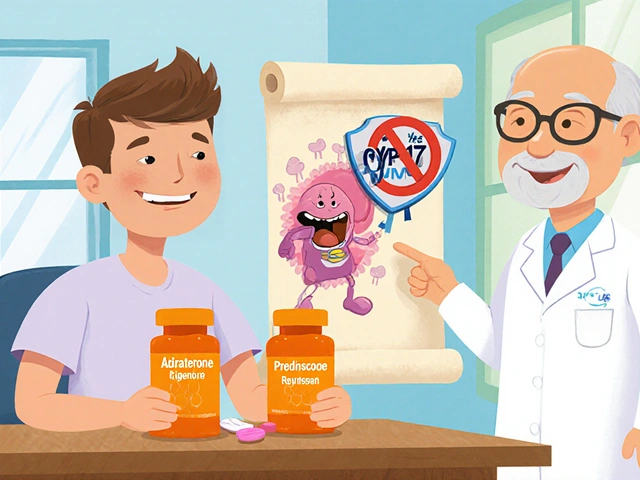Reminyl (galantamine): what it does and what to watch for
Did you know Reminyl can help slow memory decline in some people with mild to moderate Alzheimer’s? It won’t cure the disease, but it may help daily thinking and memory tasks for a time. If you or a family member are starting Reminyl, here’s a clear, practical guide to how it works, common side effects, and simple safety tips you can use right away.
How Reminyl works and when it's used
Reminyl is the brand name for galantamine, a drug that raises levels of a brain chemical called acetylcholine. That chemical helps nerve cells communicate and supports memory and attention. Doctors usually prescribe it for mild to moderate Alzheimer’s disease to help with symptoms like forgetfulness and trouble with daily activities.
There are two main forms: immediate-release (taken twice daily) and extended-release (taken once daily). Typical starting doses are low and increased slowly so the body can adjust. Your doctor will pick the best form and schedule based on health, other medicines, and how you tolerate it.
Safety, side effects, and simple tips
Common side effects are stomach-related: nausea, vomiting, diarrhea, and loss of appetite. Taking Reminyl with food often cuts down on nausea. Another important issue is that it can slow the heart rate—this matters if someone takes beta-blockers or has a history of fainting. If you notice dizziness, fainting, or very slow pulse, call your doctor.
Less common but serious risks include seizures in people with seizure disorders and urinary problems in those with prostate enlargement. People with severe liver or kidney problems may need lower doses. Doctors usually monitor weight, heart rate, and overall mood once treatment starts.
Drug interactions matter. Anticholinergic drugs (some bladder medicines, certain allergy drugs, or sleep meds) can cancel Reminyl’s benefits. Strong inhibitors of CYP2D6 or CYP3A4 enzymes can raise galantamine levels — your prescriber may lower the dose if you take those drugs. Always list all medications and supplements to your care team.
Stopping Reminyl suddenly might cause a rapid change in symptoms for some people. Talk to your doctor before stopping or changing the dose. Small, gradual changes are usually safer and easier to manage.
Practical tips: start low and go slow, take extended-release once daily if memory of dosing is hard, take doses with food to reduce nausea, and watch for dizziness when standing up. Keep a list of medications and share it with both your doctor and pharmacist.
Buying Reminyl: you should always use a licensed pharmacy and a valid prescription. Beware of sites that don’t require a prescription or that sell pills at unusually low prices — they might ship unsafe or fake products. If ordering from abroad, check customs rules and the pharmacy’s credentials.
If you have questions about whether Reminyl is right, ask your doctor or pharmacist. They can explain dose options, check for drug interactions, and help you weigh benefits against side effects for your specific situation.
4
Reminyl: How Galantamine Is Changing Dementia Treatment in 2025
Reminyl (galantamine) is making waves in dementia care. This deep dive covers how it works, who it's for, side effects, and practical tips to help you or loved ones.
Latest Posts
Popular Posts
-
 Duloxetine and Liver Health: What You Need to Know About Hepatotoxicity Risk
Duloxetine and Liver Health: What You Need to Know About Hepatotoxicity Risk
-
 OTC Heartburn Medications: Antacids, H2 Blockers & PPIs Explained
OTC Heartburn Medications: Antacids, H2 Blockers & PPIs Explained
-
 Stinging Insect Allergy: What Venom Immunotherapy Really Does for You
Stinging Insect Allergy: What Venom Immunotherapy Really Does for You
-
 Enteral Feeding Tube Medication Safety: Compatibility and Flushing Protocols Explained
Enteral Feeding Tube Medication Safety: Compatibility and Flushing Protocols Explained
-
 Celiac Disease: Gluten-Free Living and Nutrient Supplementation
Celiac Disease: Gluten-Free Living and Nutrient Supplementation



